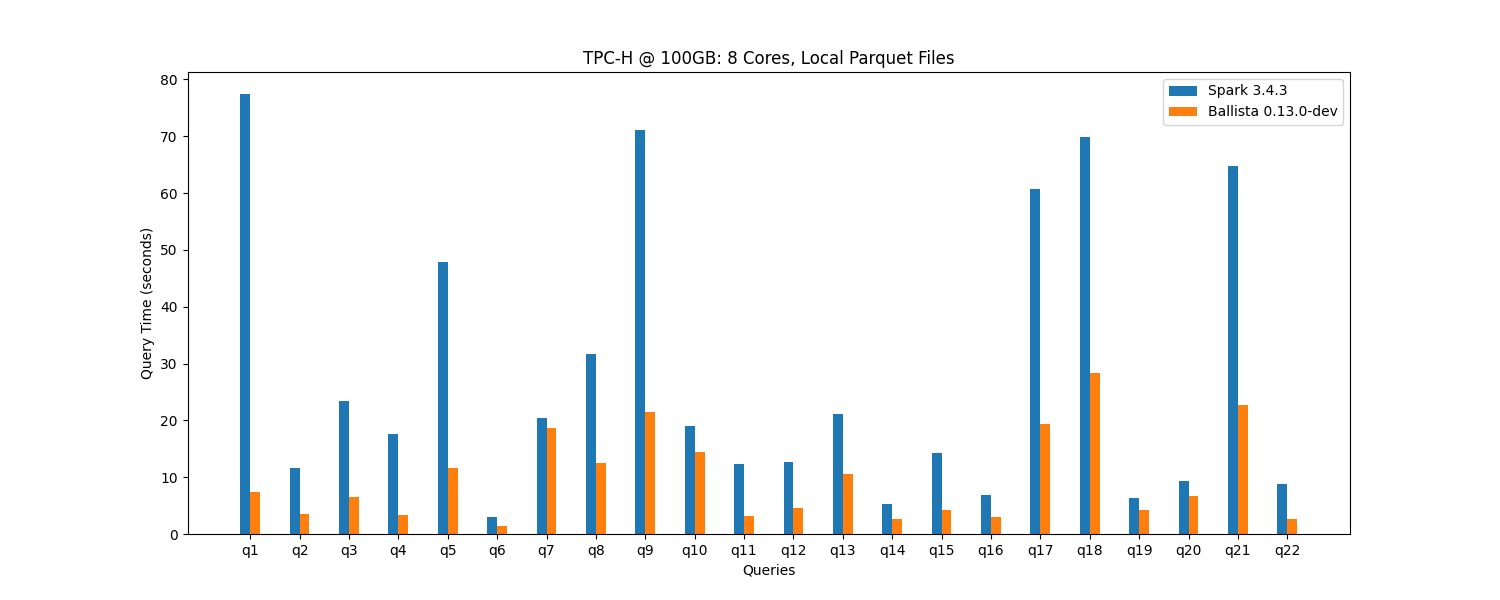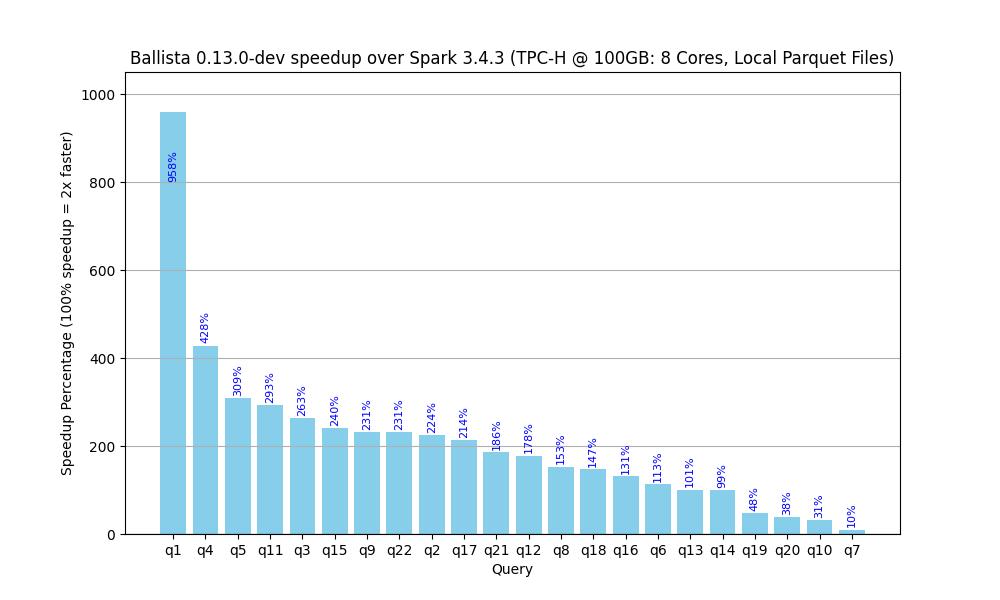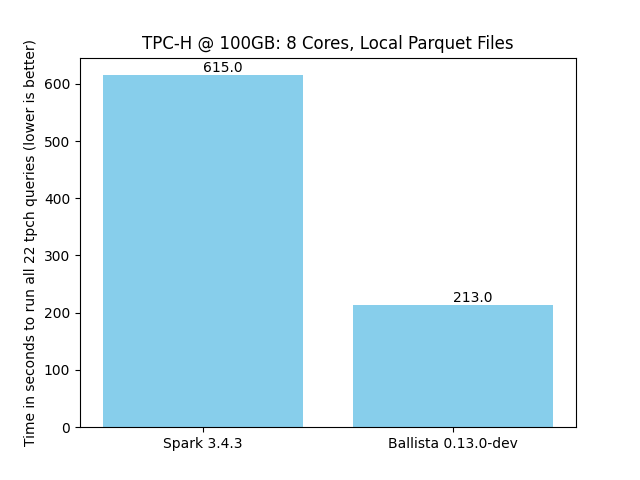Apache DataFusion Ballista 43.0.0 Released
Posted on: Sun 02 February 2025 by milenkovicm
We are pleased to announce version 43.0.0 of the DataFusion Ballista. Ballista allows existing DataFusion applications to be scaled out on a cluster for use cases that are not practical to run on a single node.
Highlights of this release¶
Seamless Integration with DataFusion¶
The primary objective of this release has been to achieve a more seamless integration with the DataFusion ecosystem and try to achieve the same level of flexibility as DataFusion.
In recent months, our development efforts have been directed toward providing a robust and extensible Ballista API. This new API empowers end-users to tailor Ballista's core functionality to their specific use cases. As a result, we have deprecated several experimental features from the Ballista core, allowing users to reintroduce them as custom extensions outside the core framework. This shift reduces the maintenance burden on Ballista's core maintainers and paves the way for optional features, such as delta-rs support, to be added externally when needed.
The most significant enhancement in this release is the deprecation of BallistaContext, which has been superseded by the DataFusion SessionContext. This change enables DataFusion applications written in Rust to execute on a Ballista cluster with minimal modifications. Beyond simplifying migration and reducing maintenance overhead, this update introduces distributed write functionality to Ballista for the first time, significantly enhancing its capabilities.
use ballista::prelude::*;
use datafusion::prelude::*;
#[tokio::main]
async fn main() -> datafusion::error::Result<()> {
// Instead of creating classic SessionContext
// let ctx = SessionContext::new();
// create DataFusion SessionContext with ballista standalone cluster started
// let ctx = SessionContext::standalone().await;
// create DataFusion SessionContext with ballista remote cluster started
let ctx = SessionContext::remote("df://localhost:50050").await;
// register the table
ctx.register_csv("example", "tests/data/example.csv", CsvReadOptions::new()).await?;
// create a plan to run a SQL query
let df = ctx.sql("SELECT a, MIN(b) FROM example WHERE a <= b GROUP BY a LIMIT 100").await?;
// execute and print results
df.show().await?;
Ok(())
}
Additionally, Ballista’s versioning scheme has been aligned with that of DataFusion, ensuring that Ballista's version number reflects the compatible DataFusion version.
At the moment there is a gap between DataFusion and Ballista, which we will try to bridge in the future.
Removal of Experimental Features¶
Ballista had grown in scope to include several experimental features in various states of completeness. Some features have been removed from this release in an effort to strip Ballista back to its core and make it easier to maintain and extend.
Specifically, the caching subsystem, predefined object store registry, plugin subsystem, key-value stores for persistent scheduler state, and the UI have been removed.
Performance & Scalability¶
Ballista has significantly leveraged the advancements made in the DataFusion project over the past year. Benchmark results demonstrate notable improvements in performance, highlighting the impact of these enhancements:
Per query comparison:

Relative speedup:

The overall speedup is 2.9x

New Logo¶
Ballista now has a new logo, which is visually similar to other DataFusion projects.

Roadmap¶
Moving forward, Ballista will adopt the same release cadence as DataFusion, providing synchronized updates across the ecosystem. Currently, there is no established long-term roadmap for Ballista. A plan will be formulated in the coming months based on community feedback and the availability of additional maintainers.
In the short term, development efforts will concentrate on closing the feature gap between DataFusion and Ballista. Key priorities include implementing support for INSERT INTO, enabling table URL functionality, and achieving deeper integration with the Python ecosystem.
Comments
We use Giscus for comments, powered by GitHub Discussions. To respect your privacy, Giscus and comments will load only if you click "Show Comments"